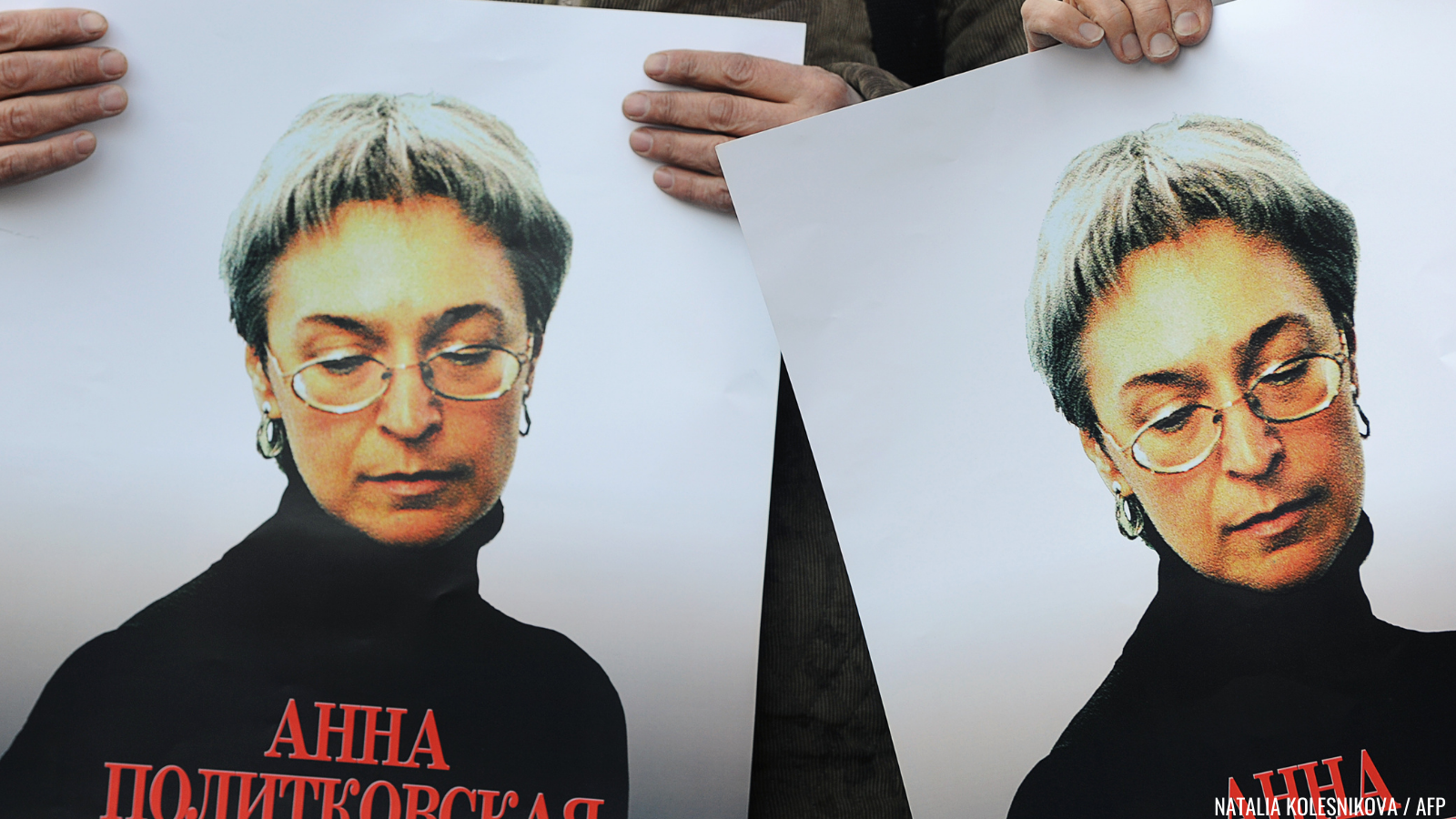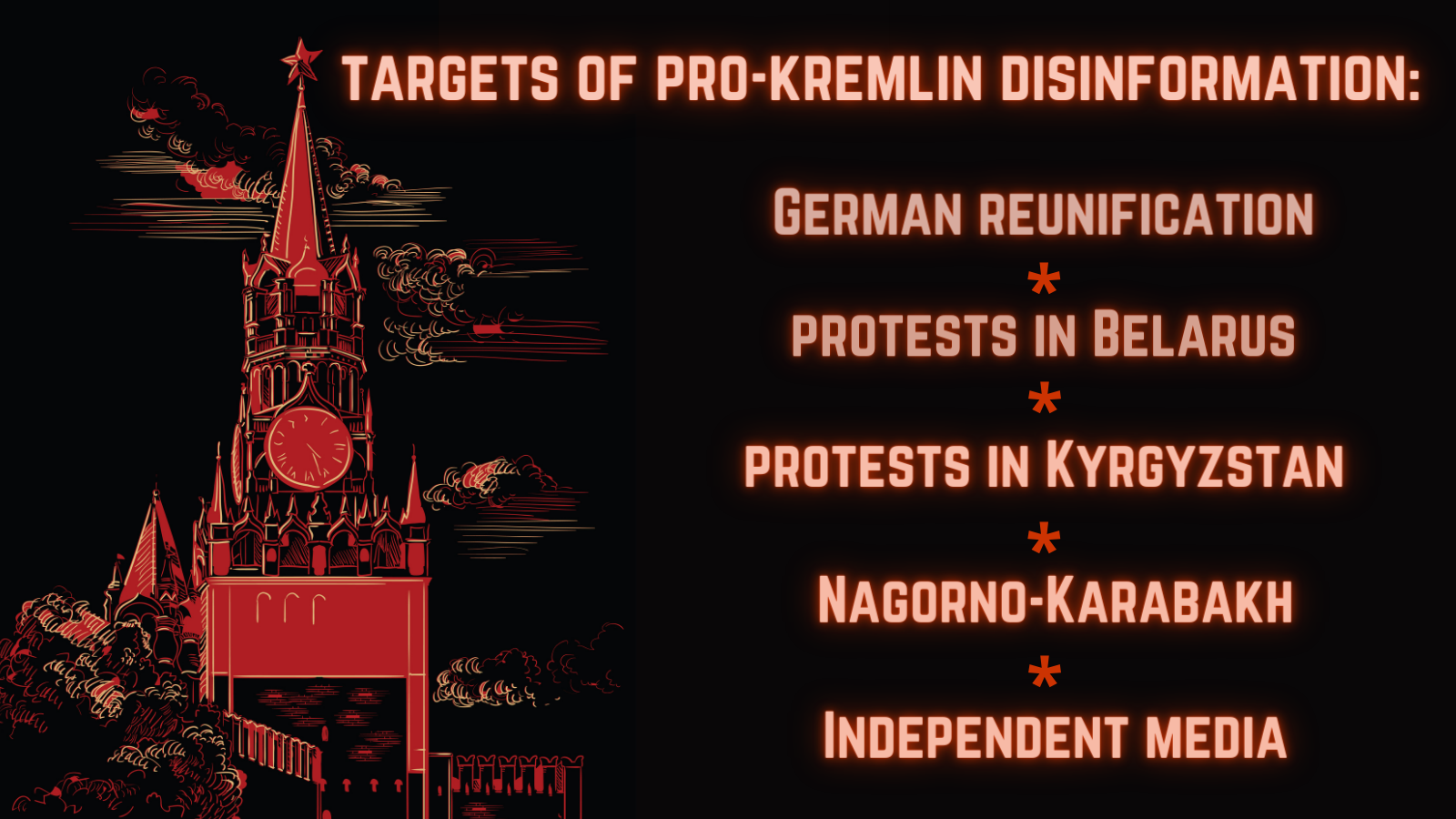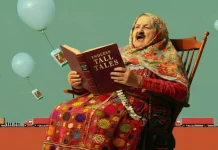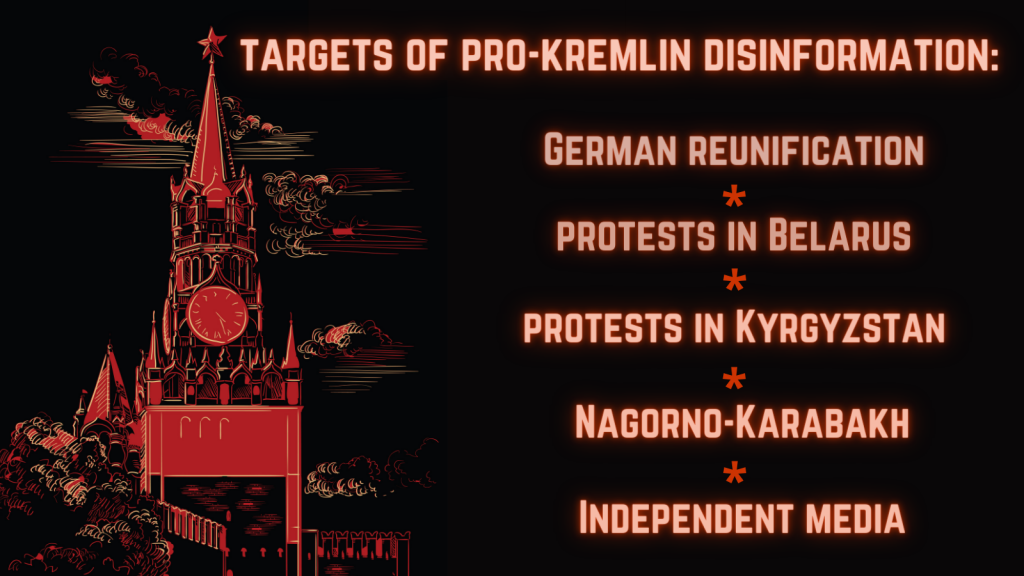
On 3 October, Germany celebrated the 30th anniversary of reunification – a defining moment in the history of Europe. And while the Kremlin sent a congratulations letter to the leaders of Germany, Russian state-controlled media did not share the sentiment. East Germany was attached to the West as a colony, claimed the EU-sanctioned TV host and executive Dmitry Kiselyov. “Historical mistake” and “betrayal of the people of the GDR”, lamented another prominent personality of pro-Kremlin media, Vladimir Solovyev, before lashing out at the former leaders of the USSR for the “humiliating, vile and disgusting” withdrawal of soviet troops from Germany.
The profound sense of bitterness and resentment about the past is a core element of pro-Kremlin myths. It shapes how both history and present times are portrayed in media loyal to the Kremlin: the Western world has always been hostile, deceitful and Russophobic; the yearning of peoples for political liberty and democratic change are merely a sinister plot.
We saw it this week as well, with pro-Kremlin media framing the ongoing protests in Belarus as a coordinated globalist attack on Russia. Or perhaps it was Ukraine, stirring up revolutions in Belarus and Russia on the orders of the RAND corporation? No, it must be “imperialistic” Poland building a springboard for protests on Russian borders, all the while refusing to recognize the “liberation” by the Red Army in 1939.
And on top of that there’s unified Germany, setting on a course of containment of Russia and denying Russia consular access to Alexei Navalny. Navalny, who is using his near-fatal poisoning to promote himself… The list of historic and current grievances is endless, and pro-Kremlin media make this list a bit longer every week.
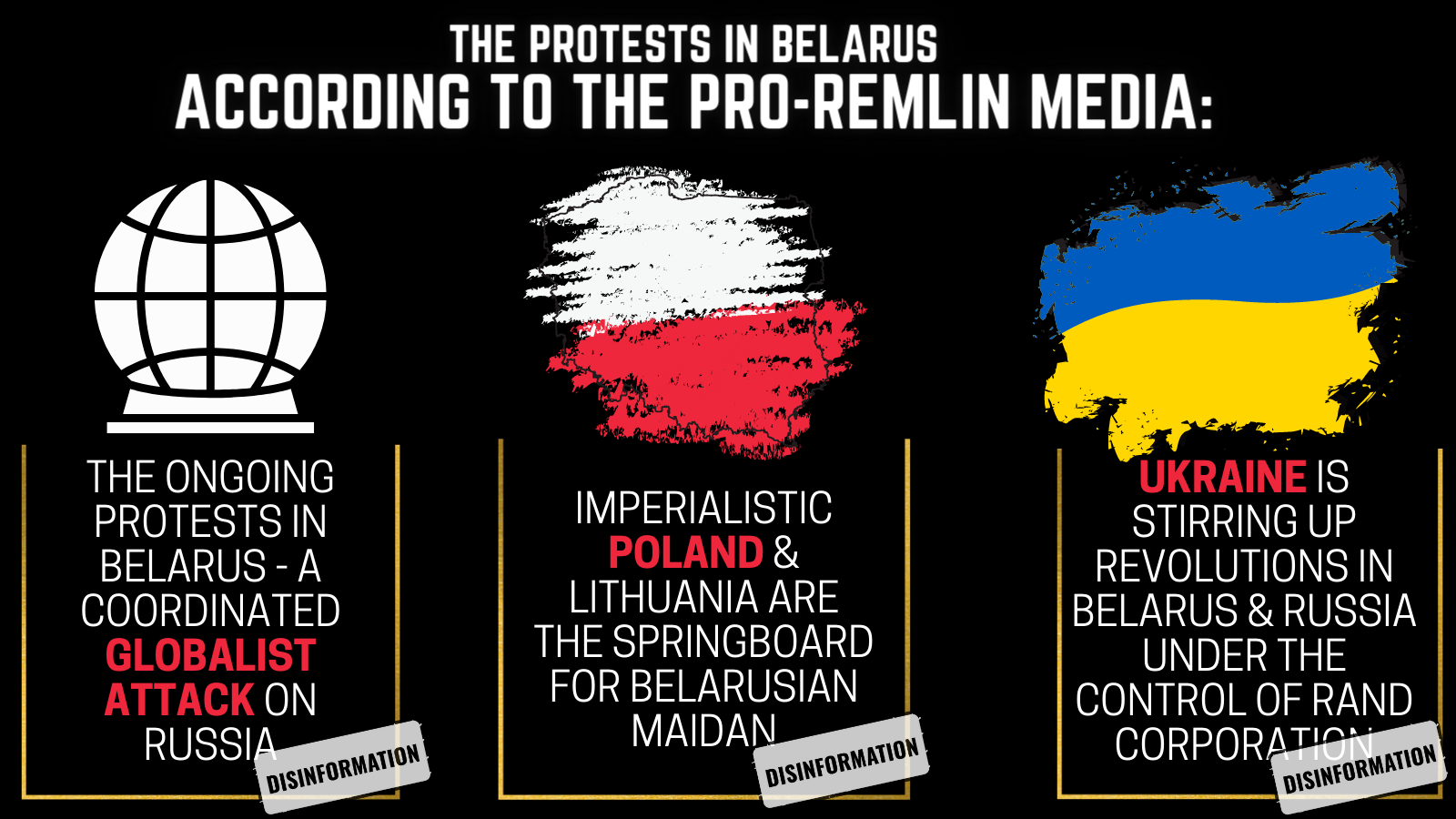
The Kyrgyzstan connection
This week, people in Kyrgyzstan took to the streets and stormed the parliament building with demands to cancel the results of the recent parliamentary election, which they denounce as rigged. Belarusian state-controlled TV jumped at the opportunity to claim that both protests in Bishkek and Minsk were “orchestrated” according to colour revolution manuals. The fact that there is no evidence to support such claims did not deter Belarusian state TV.
Belarusian audiences were treated to a grainy video from the depths of the Internet, ostensibly showing a meeting between the head of the opposition party in Kyrgyzstan and an EU diplomat. The video, filmed in secret, had no audio but anonymous netizens helpfully provided the subtitles, which “revealed” that the EU was going to sponsor the protests in Kyrgyzstan!
Screenshot from Belarus 1 TV channel
The video is as reliable “evidence” as the audio of “Mike and Nick” — alleged officers of the Polish and German secret services discussing details of the Navalny poisoning — that was released earlier by Belarussian authorities.
As the protests in Belarus enter their second month, Belarusian state-controlled spin-doctors are getting more desperate. And more creative.
Nagorno-Kharabakh
The escalation of violence in Nagorno-Karabakh provided yet another opportunity for pro-Kremlin outlets to vent historical and contemporary grudges. This week, they claimed that the re-ignited fighting in the region was a Western cover-up operation, just like in Hungary in 1956 (when in fact soviet forces had invaded the country). According to Sputnik, even the independence of both Armenia and Azerbaijan is “accidental”, as they still belong to historic Russia.
Ukraine, ever the target of pro-Kremlin disinformation, was implicated as well: Kyiv will deliver weapons to Azerbaijan under the guise of humanitarian aid and send far-right fighters trained in Donbas to Nagorno-Karabakh, disinformation outlets claimed, presenting zero evidence. They also suggested that the fighting in Nagorno-Karabakh significantly increased the chance of new hostilities in Donbas, as Kyiv was pushed to attack by its “American masters”.
Resentment against Ukraine runs deep in pro-Kremlin media, causing “Ukrainian radicals” to continuously emerge across the globe: in the US, in Hong Kong, in Belarus, and now in Nagorno-Karabakh.
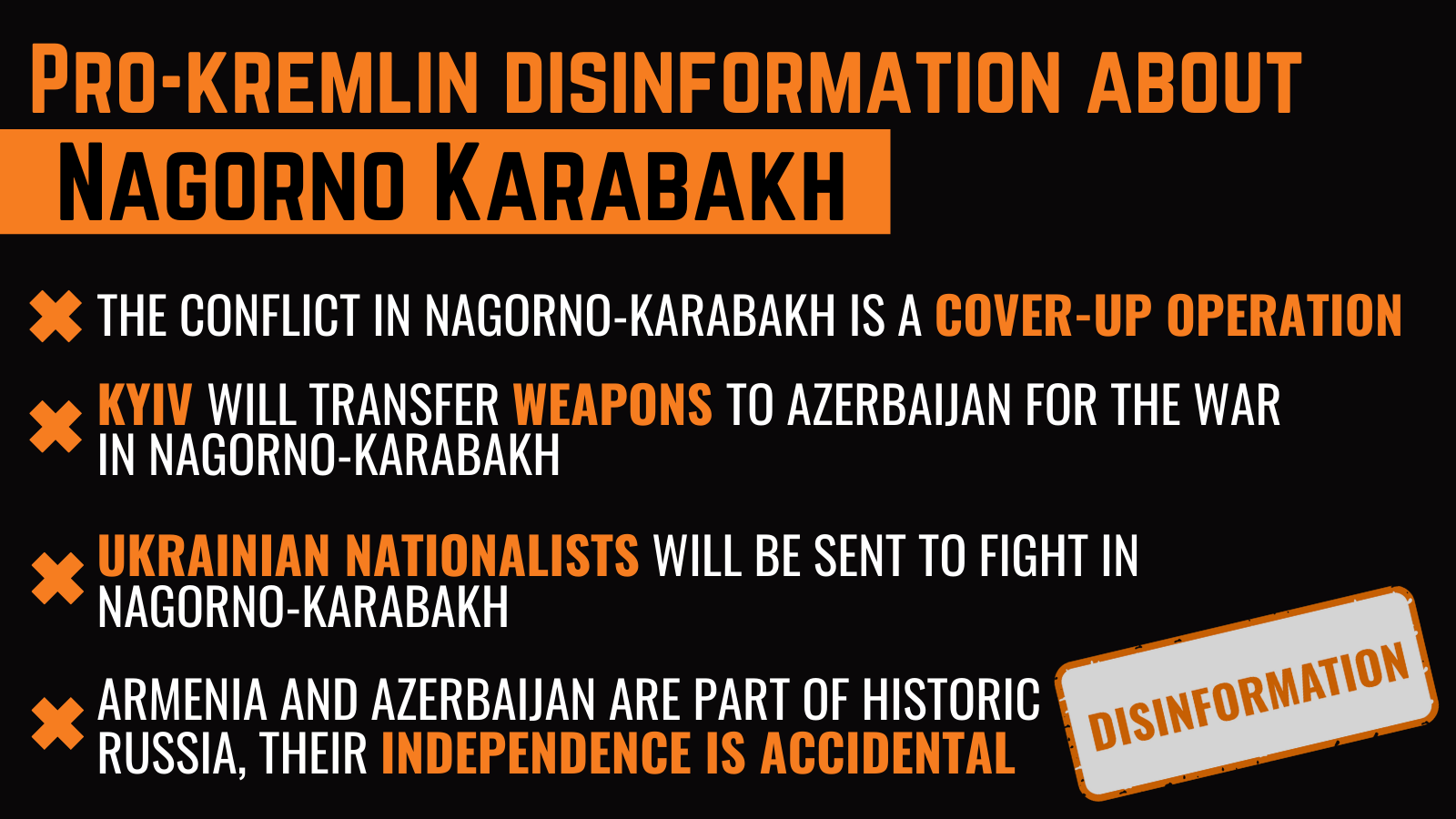
Uncomfortable journalism
Free and independent media fighting the ghosts of the past and myths of the present is a major source of grievance for pro-Kremlin media. Disinformation outlets expressed their hostility recently by distorting a report by Radio Free Europe / Radio Liberty about Russian activist Vladimir Kara-Murza and by attacking Twitter for shedding light on accounts owned by media affiliated with the Russian government.
But what happens when disinformation is not enough to relieve the discomfort of honest reporting?
Fourteen years ago this week, prominent Novaya Gazeta journalist Anna Politkovskaya was gunned down in her apartment building in Moscow. The organizers of her murder remain unknown.
